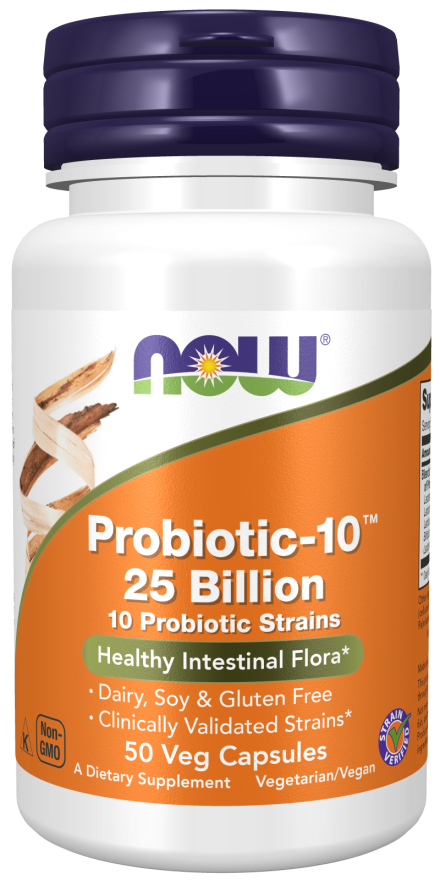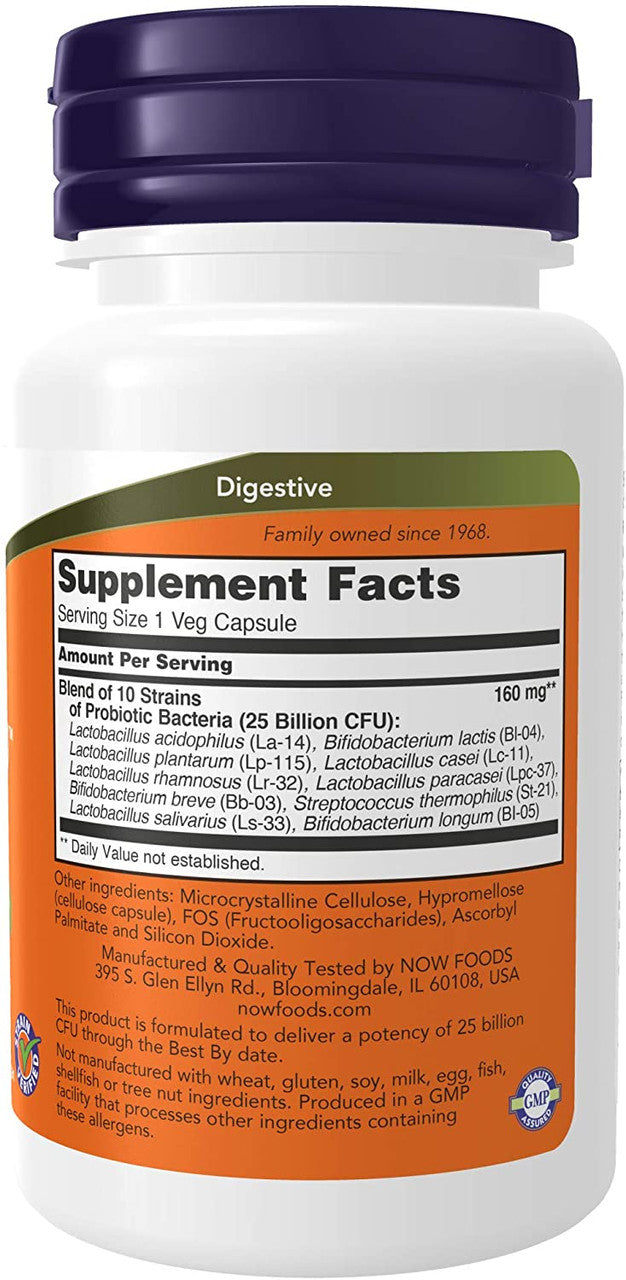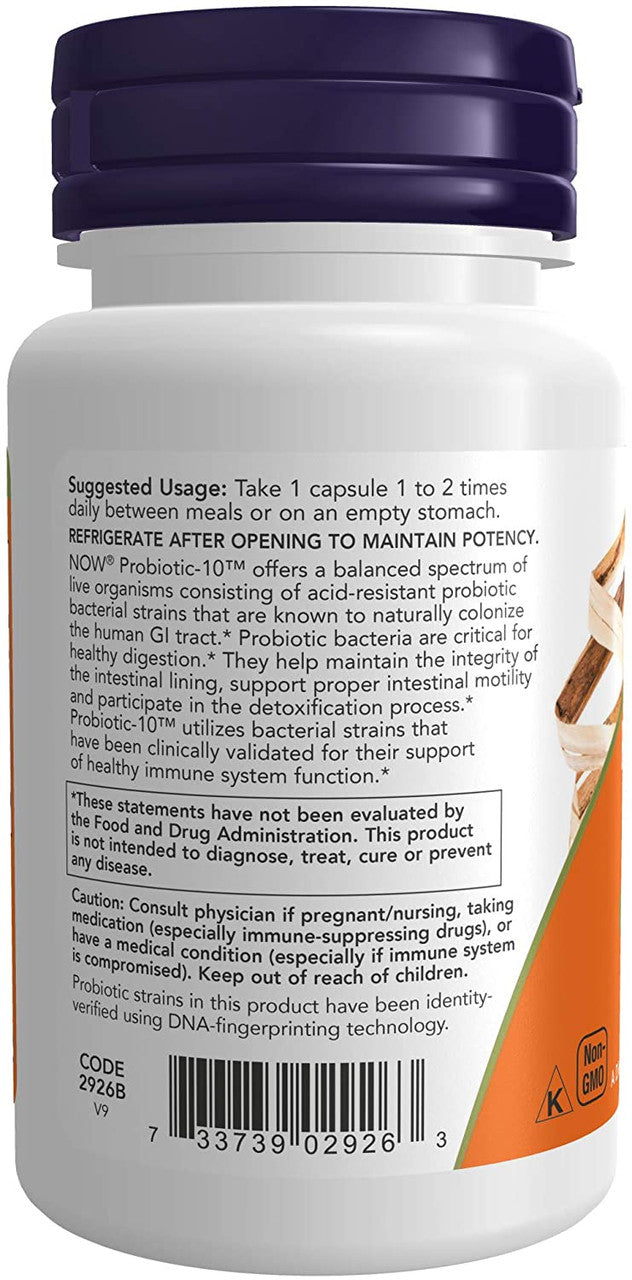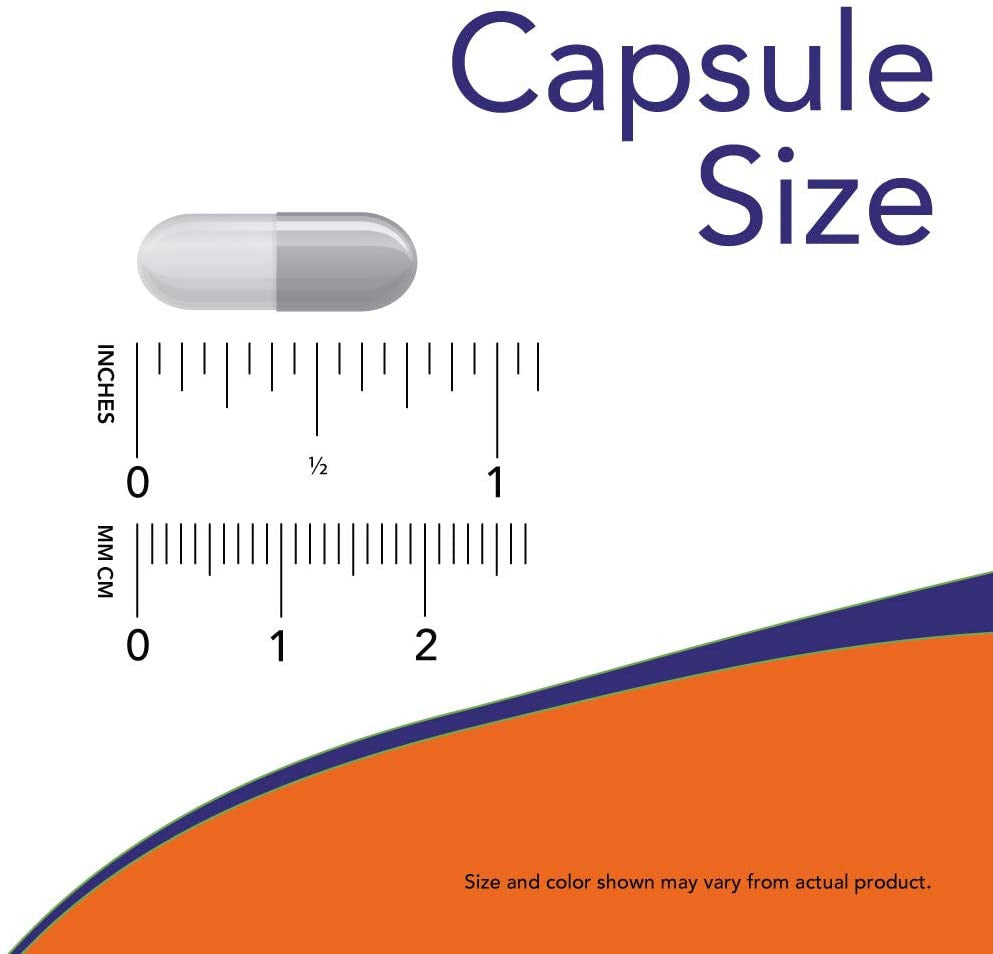Probiotics (friendly bacteria) are dietary supplements which consist of bacteria...Learn more.
Probiotics (friendly bacteria) are dietary supplements which consist of bacteria which form a symbiotic relationship with us. In fact, bacteria cells living in our gut out number our own cells by 10 times! Over 400 different strains of bacteria form a complex mutually beneficial relationship with their human hosts. Helpful bacteria have been with us a long time as pointed out by Dr. Martin Blaser, a pioneer in gut microbe research, "They've been selected through evolution because they help us."
Natural probiotics exist in several foods including yogurt, certain cereals and fermented milk. Specifically, probiotics consist of lactic acid producing bacteria (LAB), non-lactic acid producing bacterial species, and non-pathogenic yeast. Some of the commonly used microflora in probiotics include:
L. acidophilus, L. fermentum, L. paracasei, L. brevis, L. gasseri, L. plantarum, L. bulgaricus, L. helveticus, L. reuteri, L. casei, L. jensenii, L. rhamnosus, L. crispatus, L. johnsonii, L. salivarius, B. adolescentis, B. breve, B. longum, B. animalis, B. infantis, B. thermophilum, B. bifidum, B. lactis, Streptococcus thermophilus, Enterococcus faecium, Bacillus subtilis, B. coagulans, B. licheniformis, B. cereus Proprionibacterium, S. boulardii, L. rhamnosus, Lactobacillus strains and Bifidobacterium strains.
2. What do Probiotics do and what scientific studies give evidence to support this?
Why this interest in probiotics? It starts on a universal scale; the world is full of microorganisms (including bacteria), and so are people's bodies--in and on the skin, in the gut, and in other orifices. They take up residence in babies soon after birth. Friendly bacteria are vital to proper development of the immune system, to protection against agents that could cause disease, and to the digestion and absorption of food and nutrients. Each person's mix of bacteria varies. Interactions between a person and the microorganisms in his body, and between the microorganisms themselves, can be crucial to the person's health and well-being. - http://nccam.nih.gov/news/newsletter/2006_summer/bacteria.htm
Basic Probiotic Functions:
- Probiotics obstruct harmful bacteria life and reproduction
-
Good flora feed on the same nutrients as harmful bacteria, thereby starving them
- Probiotics cause a reduction in harmful bacteria by taking the best adhesion sites on the gut wall
- Probiotics balance pH in the gut
- Probiotics enhance overall digestion
- Healthy bacteria ensure best Microflora balance for the natural immune system.
Probiotics are beneficial to us in a number of ways which have been studied and documented, especially where a microflora imbalance exists. Probiotics enhance the function of the immune system, reduce populations of harmful microorganisms by competing for resources and provide numerous digestive support benefits as well. Some of the more commonly documented functions of probiotics include: alleviation of eczema, irritable bowel syndrome and food allergies, inflammation management, vitamin production and enhanced mineral absorption.
Bacterial imbalances are associated with many of the aforementioned conditions. Unhealthy imbalances can occur over time or are the consequence of other factors such as antibiotics treatment. Antibiotics can create an imbalance of harmful bacteria in the body by wiping out an individual's natural flora.
Although clinical trial data on probiotics is incomplete, a number of studies indicate support for the purported benefits of probiotic ingestion.
-
Colon Cancer Prevention? A recent, exciting study published in August of 2007 showed that, "Probiotics may offer other health benefits, but one receiving more support recently is the possibility of helping to prevent colon cancer. If results of a small but well-controlled study in Ireland are repeated, probiotics – live bacteria that can benefit health – might have a place alongside vegetables, legumes, whole grains and regular exercise in our strategies to lower risk of cancer." - Karen Collins, R.D., American Institute for Cancer Research
-
In a recent study, published in the Journal of Allergy and Clinical Immunology, researchers gave a probiotic containing four strains of gut bacteria to 461 infants labeled as high risk for developing allergic disorders. After two years, the children were 25 percent less likely than those given a placebo to develop eczema, a type of allergic skin inflammation.
-
In 2005 a double-blind placebo-controlled study, alleviation irritable bowel syndrome symptoms were reduced by over 40% Where a combination of two strains of L. rhamnosus, B. breve and Propionibacterium freudenreichii were used (Pharmacol. Ther. 2005;22:387-394).
-
Additionally, a few Russian studies conducted about 20 years ago suggest probiotics ability to reduce the symptoms of food allergies. These studies were published in Chemioterapia and Vopr Pitan.
For an extensive, yet incomplete list of studies and references about probiotics check pages 7 and 8 of the following comprehensive probiotics PDF (http://www.protherainc.com/images/prod/pdf/MakingSense.pdf). Clinical trials on probiotics continues and more studies are regularly published.
3. Who needs Probiotics and how much should be taken? Are there any side effects or symptoms of deficiency?
Nearly everyone can benefit from probiotic supplementation with consultation from an experienced and knowledgeable health practitioner. People supplement with probiotics for a number of reasons; e.g. supplementation with probiotics can enhance protein digestion for people who produce insufficient amounts of stomach acid and cannot activate the proteolytic enzyme pepsin as well as those with pancreatic insufficiency deficient in pancreatic enzymes. Probiotics may also provide enhanced immune system support and shows promise for autoimmune diseases and inflammatory conditions.
Probiotic supplements should be taken with moderately-sized meals, consisting of food no warmer than room temperature. It is also recommended that probiotic supplements be taken with lots of water to dilute minimize stomach acid and bile exposure. Generally a dosage of one billion colony forming units is required for viable probiotics delivery to the intestines. If taken in conjunction with antibiotics, it's generally recommended to supplement at least one hour before or two hours after antibiotics ingestion.
One of the criticisms of probiotic supplements is the question of whether the bacteria can survive stomach acid and bile to reach the intestines intact. It has been shown that many probiotics do reach the intestines intact; nevertheless, some supplement manufacturers have developed innovative processes that coat probiotic microorganisms protecting them from gastric acid and allowing delivery to be completed in the intestines. To preserve the viability of probiotics it is recommended that refrigeration is used.
Probiotics have been used by people for thousands of years in the form of consumption of fermented milk. They have been used widely and safely with great benefit in a variety of circumstances and have even shown benefits for infants.
Although persistence and taking probiotics is usually rewarded by symptom improvement, some individuals may experience gas, abdominal discomfort or diarrhea and rarely probiotics have been associated with infections. Some of this may be attributed to a "die-off" in fact as harmful bacteria die releasing toxic cell products when healthy flora is reintroduced to the intestines.
Probiotics should be regularly consumed to restore and maintain normal intestinal balance of essential healthy flora.
The goal of supplementing with probiotics is to promote health and longevity by reestablishing a natural healthy balance of intestinal microorganisms in the body. Only the most reputable and trusted manufactures of probiotics are carried by A1Supplements.com.
Written by: Travis Smith.
These statements have not been evaluated by the Food and Drug Administration. This product is not intended to diagnose, treat, cure, or prevent any disease.















